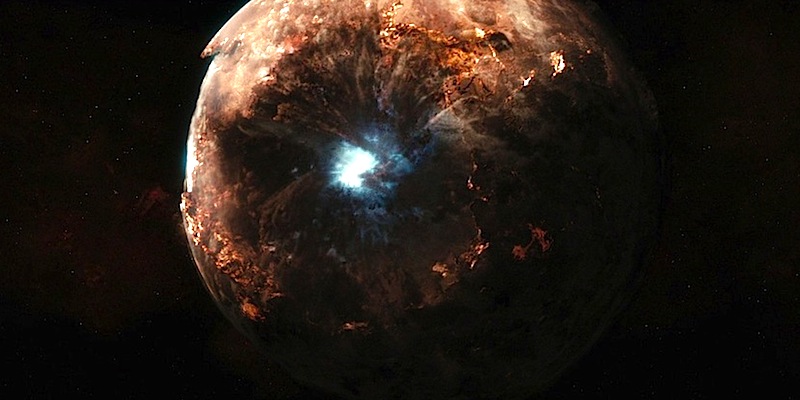When Roberto Orci stepped down from directing Star Trek 3, rumor had it that one of the major problems was his screenplay. According to Badass Digest, the script saw the Vulcans racing to find a time travel device so that they could go back in time and save their planet Vulcan from (in the reboot’s new timeline) Nero blowing it up with red matter, effectively rebooting the reboot.
It’s for several reasons that I’m glad Orci won’t be helming the new Star Trek, but this one is paramount: They shouldn’t try and resurrect Vulcan! Or any obliterated planet, for that matter! Blowing up an entire world should be the kind of narrative decision that writers stick to, without the safety net that they can reverse it when they need more stories a few years down the road.
That doesn’t mean I’m against “let’s save the world!” narratives. I am all for a rah-rah story about narrowly avoiding that massive asteroid/white-hot laser/nuclear warfare. But there are clear consequences to blowing up an entire world, and they should be honored. As TV Tropes points out, with nearly any other apocalyptic scenario, mankind can rebuild. Not when their planet is dust.
Watching Alderaan get blown up in Star Wars: A New Hope was one of the most shocking sci-fi moments I’ve ever experienced. Never mind that I was eight when I first saw that movie; I still get a chill when at the moment where Leia thinks she’s outsmarted Darth Vader and Grand Moff Tarkin, only for them to call her Dantooine bluff and still set the Death Star’s lasers on her homeworld:
In moments, an entire planet is blown to smithereens. And when Leia’s kids come of age in the Expanded Universe, they don’t embark on some foolish quest to restore Alderaan to its former glory and wholeness. The Young Jedi Knights novel Shards of Alderaan has the Solo twins literally weaving through the Graveyard, where the pieces of Leia’s home float as a constant reminder of what can never exist again. Leia got the New Republic and the destruction of the Empire, but none of that can bring back her childhood home.
I have yet to see a narrative that successfully restores a decimated planet while entirely convincing audiences that it was a necessary resurrection. Doctor Who almost got me there with its 50th anniversary special “The Day of the Doctor”: Each traumatized in different ways by Gallifrey’s fall in the Time War, the Tenth, Eleventh, and War Doctors team up to bring back their planet. What slightly redeems this reversal is that they don’t just flip the switch on Gallifrey’s destruction; instead, they freeze the planet in a pocket universe, allowing it to disappear right before the Dalek fleets open fire and destroy each other. The ensuing crossfire hides Gallifrey’s disappearance, adhering to the original canon that it was destroyed, while the planet lives on, to be discovered again someday by the Twelfth (or later) Doctor.
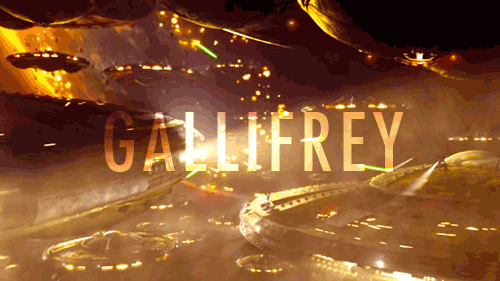
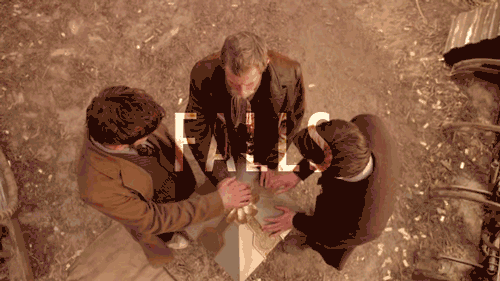
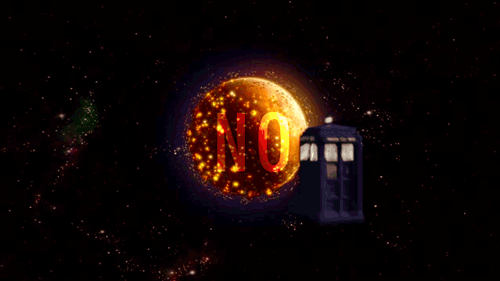

GIFs via the official Doctor Who Tumblr
Stirs up the feels, doesn’t it? But when the emotion of the moment faded, I just felt manipulated. You can make the argument that whether or not Gallifrey exists equally affects the Doctor’s character development, either through his angst over believing he condemned his planet or how its renewed existence affects his relationship with the Master. But as a viewer, I felt sucked in by a hyperbolic plot reversal, the benefits of which nevertheless negated the original loss of the planet.
Why the overwhelming need to click a giant “UNDO” button when it comes to blowing up planets? Is it mere storytelling boredom, or does it grow out of insecurity about our real planet Earth’s chances of surviving the coming millennia? The strongest sci-fi narratives concerning the fate of Earth (or a similar planet) are not the ones where humans double back to revive their homeworld, but instead those where they cut their losses and look for their next home.
Christopher Nolan’s Interstellar managed to destroy Earth, though it had to happen off-screen. At least, that’s what you have to assume at the end of the film, when Cooper wakes up on the Saturn-orbiting Cooper Station, where the remains of humanity live after abandoning their planet. They didn’t go all Death Star and turn it into space shrapnel, but they clearly have no intention of returning to their barren former home.
Some narratives, like the 2012 romantic comedy Seeking a Friend for the End of the World, treat this story trope as the true final end. There is no sequel where humans go back in time and recreate Earth, because by the movie’s end, there are no survivors. It doesn’t fit as well as the other examples here because there’s absolutely no second chance for humans, but I felt compelled to include it for how damn affecting that ending is.
Thankfully, some Vulcans did make it off-planet before Nero struck, so they have options. The more interesting drama in Star Trek 3 would be to have Spock struggle to rebuild Vulcan society on a new planet. (Which we assume Old Spock is doing offscreen during Into Darkness.) The screenwriters could pull inspiration from Battlestar Galactica, a series whose entire premise centers on some 50,000 survivors turning their backs on their 12 imploding planets to track down one mythical world where they can unite their splintered societies into a new form of humankind.
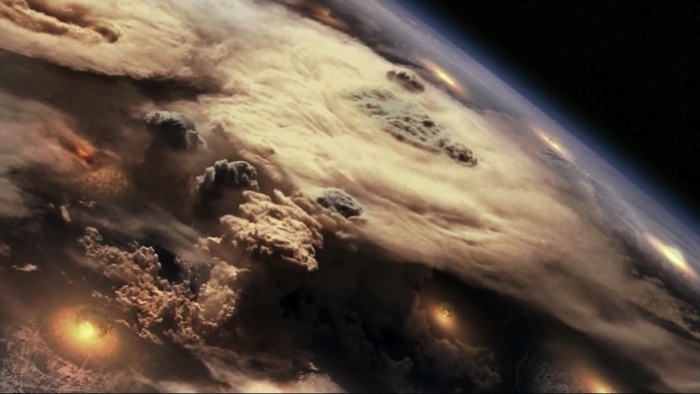
Or how about the 2000 animated film Titan A.E.? Though cheesy in parts, it opens with the destruction of Earth, a ballsy move for a kids’ movie. But after that shock-inducing opening, the movie’s real drama is revealed through its depiction of the tattered remnants of humanity as nomads, ridiculed by other alien species for not having a home. It’s a fascinating commentary on humans achieving deep space travel yet finding themselves sorely disadvantaged. Also, I’m much more a fan of creating a new planet entirely from scratch than just rebooting the old one.
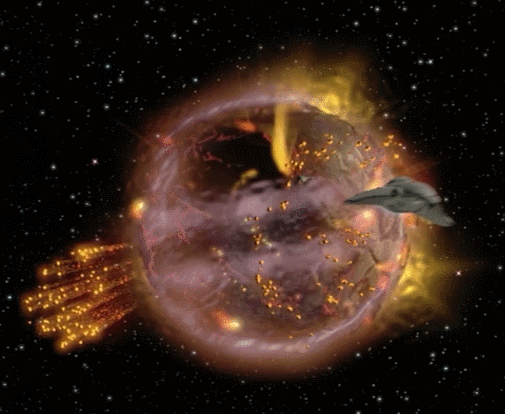
GIF via KH13
If you’re going to destroy a planet, stick to your guns—or Death Star lasers, as the case may be—and let the permanent consequences dictate the survivors’ next moves. Look forward, not back.
Natalie Zutter swears she has nothing personal against Earth, or Vulcan, or Gallifrey. She just likes irreversible story tropes! You can read more of her work on Twitter and elsewhere.










